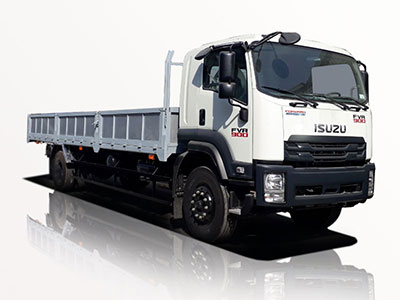When it comes to hauling heavy loads or recreational vehicles, understanding truck and towing basics is essential for safety and performance. Whether you are a seasoned pro or a newcomer to towing, this comprehensive guide will equip you with everything you need to know.
Understanding Towing Capacities
What is Towing Capacity?
Towing capacity refers to the maximum weight your vehicle can safely tow. This number is crucial for ensuring safety on the roads. Overloading can lead to accidents, mechanical failures, or legal troubles.
How to Determine Your Vehicle’s Towing Capacity
- Check the Owner’s Manual: The manufacturer’s specifications are the most reliable source for accurate capacities.
- Consider Weight Ratings: Look for the Gross Vehicle Weight Rating (GVWR) and Gross Combined Weight Rating (GCWR) for accurate assessments.
- Consult Online Resources: Various websites and forums can provide useful tools for calculating towing capacity based on your truck’s make and model.
Types of Trailers You Can Tow
Lightweight Trailers
- Utility Trailers: Great for transporting bulk items and debris.
- Teardrop Trailers: Perfect for camping with minimal gear.
Heavy-Duty Trailers
- Fifth-Wheel Trailers: Higher weight capacity and better stability, suitable for larger loads.
- Gooseneck Trailers: Provides improved towing with a hitch mounted in the bed of the truck.
Recreational Trailers
- Travel Trailers: Versatile for family vacations and weekend getaways.
- Boat Trailers: Essential for transporting boats to and from water.
Essential Towing Equipment
Towing Hitches
Towing hitches come in different types and classes, which determine their weight limits.
| Hitch Class | Weight Capacity |
|---|---|
| Class I | Up to 2,000 lbs |
| Class II | Up to 3,500 lbs |
| Class III | Up to 8,000 lbs |
| Class IV | Up to 10,000 lbs |
| Class V | Over 10,000 lbs |
Weight Distribution Hitches
Weight distribution hitches are crucial for maintaining vehicle control when towing heavier loads. They help distribute the trailer’s tongue weight across all axles of the tow vehicle and trailer.
Brake Controllers
Brake controllers are essential for trailers that exceed a certain weight. They apply the trailer brakes proportional to the tow vehicle’s braking force, enhancing safety.
Safe Towing Practices
Pre-Towing Checklists
- Check tire pressure on both the truck and trailer.
- Inspect the hitch and couplings for security.
- Ensure all lights and signals work properly.
Operating Tips While Towing
- Maintain a safe following distance.
- Use mirrors to keep an eye on your trailer.
- Brake gradually and accelerate smoothly.
Driving in Different Conditions
- Wet or Icy Roads: Reduce speed and increase following distance.
- Mountainous Terrain: Use lower gears to manage steep descents.
- High Winds: Remain calm and steady, as strong winds can sway the trailer.
Legal Requirements for Towing
Licensing and Certifications
Some regions require specialized licenses for towing heavy trailers. Always check local laws to ensure compliance.
Insurance Considerations
Ensure your auto insurance covers towing, especially if you are using a commercial vehicle for towing purposes. Consider supplemental coverage for increased safety.
Weight Limits and Regulations
Each state has specific regulations regarding weight limits and towing practices. Familiarize yourself with these to avoid fines and penalties.
Common Towing Mistakes to Avoid
Overloading Your Vehicle
Always adhere to your vehicle’s towing capacity. Overloading can lead to tire blowouts, brake failures, and accidents.
Neglecting Trailer Maintenance
Regular inspections of your trailer, including tires, brakes, and lights, ensure that your setup is safe for the road.
Ignoring Weight Distribution
Improper weight distribution can cause sway and handling issues. Ensure the load is well-balanced before hitting the road.
Tips for New Towing Enthusiasts
Practice Makes Perfect
Before hitting the highway, practice driving with your trailer in safe, open spaces. This experience will boost your confidence.
Seek Advice from Professionals
Don’t hesitate to ask for advice from experienced towers or take a towing class to learn essential skills.
Stay Informed About New Technologies
Today’s trucks come with advanced towing technologies, such as backup assist and lane guidance. Familiarize yourself with these features.
Frequently Asked Questions (FAQs)
What should I do if my trailer sways while towing?
Instinctively slow down and steer straight. Do not slam on the brakes. If the sway continues, safely pull over to the side of the road.
Can I tow a trailer without a brake controller?
It depends on the weight of the trailer. Federal regulations generally require a brake controller for trailers over 3,000 pounds.
How do I choose the correct hitch for my trailer?
Match the hitch class to your trailer’s weight specifications. Always err on the side of caution by selecting a hitch with a higher capacity.
What is tongue weight and why is it important?
Tongue weight is the downward force exerted at the trailer hitch. It should be about 10-15% of the total trailer weight for best towing stability.
Is it safe to tow with a small truck?
As long as the truck is within its towing capacity, it is safe to tow. Evaluate the specific vehicle and trailer combinations carefully.
How often should I inspect my towing setup?
Inspect your towing setup before every trip. A thorough check every few months or before long-hauls can help prevent issues on the road.





